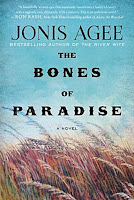The stories feature a principal group of characters; Henrietta Atkins, born before the Civil War in what might be the Finger Lakes district of New York, provides the focus for 150 years of storytelling. You wouldn’t, however, call this a multigenerational saga, because the short pieces here bring dramatic moments in people’s lives into clear focus, leaving other broad dramas and events out of the scheme.
Barrett introduces her characters and we come to know them very, very well. Henrietta is an accomplished amateur natural historian, a type with a long, illustrious history. She teaches high school science, and guides extra-curricular science activities. She eschews one potential proposal through an odd, self-conscious reaction, but does not go loveless through life.
Strong relationships between strong women abound in this collection, and provide some of the most gratifying reading. We witness the great and the tragic events of the times—the Civil War and the First World War both occur during Henrietta’s life, along with the 1918 influenza epidemic, the sensational early days of flying by celebrated pilots, and the Volstead Act, inaugurating Prohibition. Throughout, women reinforce each other during strife-torn times, write ground-breaking scientific papers, defy death in flying machines, and pass learning on the the next generation through wisdom and compassion.
Andrea Barrett’s power of observation, her kindness toward her readers, and her uncanny felicity with the language lead us to hours of delight and wonder. I recommend this very, very highly.


































